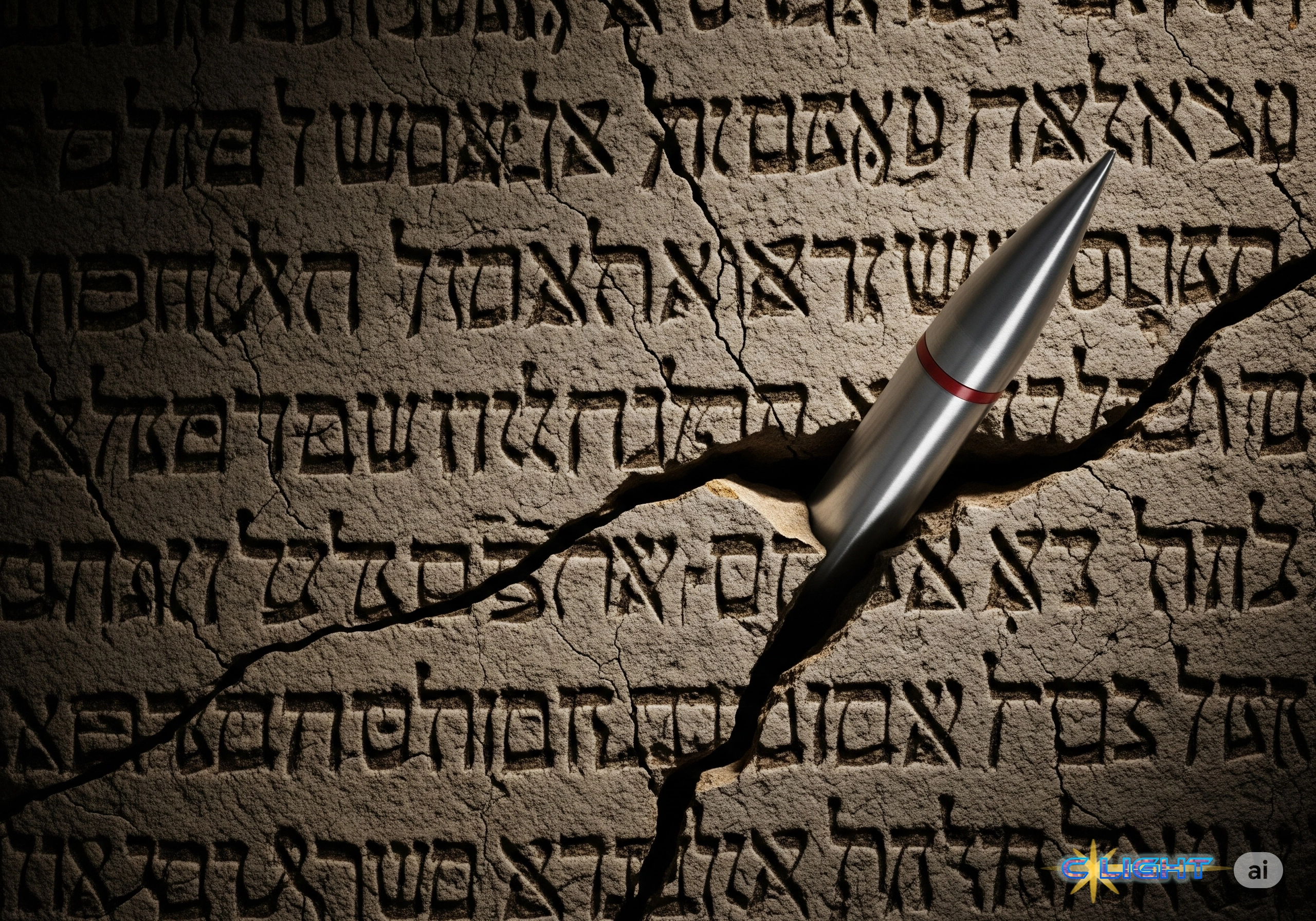The American bombing of Iran’s nuclear facilities, presented to the world as a decisive and “spectacular military success,” ignited an immediate and predictable firestorm. In Washington, debates raged over presidential power, constitutional law, and foreign policy doctrine. Globally, diplomats issued stern condemnations and calls for restraint. Yet to analyze this event through any of these conventional lenses is to fundamentally misread the situation. The United States has not simply intervened in a modern geopolitical dispute; it has blundered, with all the hubris of a young empire, into one of the world’s most ancient and intractable cultural blood feuds. The real question is not whether the American president had a coherent plan, but whether any external power can comprehend, let alone alter, a multi-millennial conflict between two civilizations—Israel and Iran—that are two sides of the same historical coin.
Within the United States, the political sideshow commenced with furious speed. A bipartisan chorus of legislators, from House Minority Leader Hakeem Jeffries to Republican Rep. Thomas Massie, decried the action as a flagrant violation of the War Powers Act and Article I of the Constitution, which grants Congress the sole power to declare war. Critics pointed to a glaring intelligence disconnect, noting that the administration’s justification for the strike contradicted assessments from its own intelligence community that Iran had not yet built a weapon. This entire debate, however important to the American legal order, is a luxury. It is an argument over process, conducted thousands of miles from the reality of the conflict, a procedural squabble that fails to grasp the nature of the hatreds involved.
Equally futile are the attempts to fit this action into a coherent “[Punk] Doctrine.” The strike seemingly shatters the “America First” isolationism that Felonious Punk long espoused, dragging the nation to the brink of the very type of Middle Eastern war he pledged to avoid. Some analysts argue this is “[Punk] unchained”—a second-term president, free from electoral constraints, finally acting on his rawest instincts. Others attempt to impose a strategic framework, suggesting a belief that the overwhelming application of American power can force any adversary to capitulate. But these analytical exercises are meaningless. Any modern American foreign policy doctrine, whether realist or nationalist, is rendered impotent when applied to a conflict so far beyond its cultural understanding. It is akin to using a modern legal textbook to referee a 4,000-year-old blood feud.

To glimpse the real stakes, one must look past Washington, D.C. and listen to the echoes of ancient history. A recent op-ed in the Religion News Service framed the Israeli position through the words of a Bob Dylan song, casting the nation as the “Neighborhood Bully” who must destroy a bomb factory because he is outnumbered and has “no place to run.” This is a narrative of existential, identity-based survival against overwhelming odds. What this emotional analysis misses, however, is that it is not unique. A nearly identical lens can be applied to its adversary. Iran is not merely a modern “rogue state”; it is the heir to the Persian empire, an equally ancient and proud civilization with its own deep-seated sense of historical identity, grievances, and existential imperatives. The conflict is not truly about a treaty or a single presidential administration. It is a cultural constant, an enduring animosity where both sides see themselves as righteous survivors.
The international community’s reaction only underscores the futility of the American action. The response was one of myopic, transactional logic. Russia’s condemnation was rendered hollow by its own military constraints in Ukraine and a strategic pact with Iran that conveniently excludes mutual defense. European leaders, as analyst Jacob Kirkegaard noted, were “secretly very happy,” seeing a weakened Iran as a geopolitical victory over Russia. This cynical self-interest treats a deep-seated cultural feud as a simple pawn on a chessboard. This myopia is compounded by the fact that the strike itself was strategically incomplete. As experts attest, destroying facilities does not destroy knowledge or a stockpile of enriched uranium. The bombing did not solve the nuclear problem; it merely postponed it.

The question was never whether Felonious Punk or his advisers thought this mess through in terms of American law or strategy. The real question is why an American administration believed it could intervene meaningfully in a cultural conflict so ancient and so deep that its own actions are but a fleeting and irrelevant moment. Long after this presidency is a historical footnote, the ancient conflict between the peoples of Iran and Israel will continue, for it is an intractable part of who they are. And no U.S. President is going to change that.
Discover more from Clight Morning Analysis
Subscribe to get the latest posts sent to your email.










